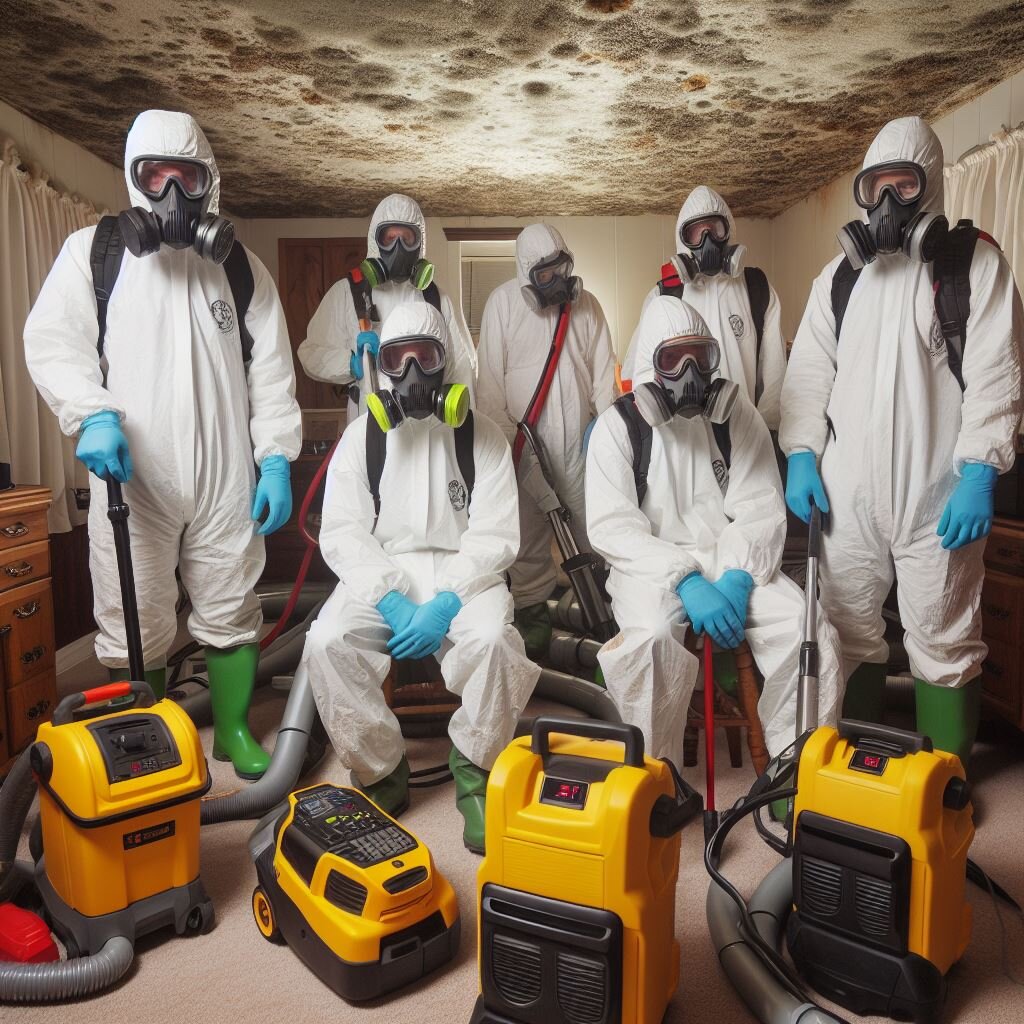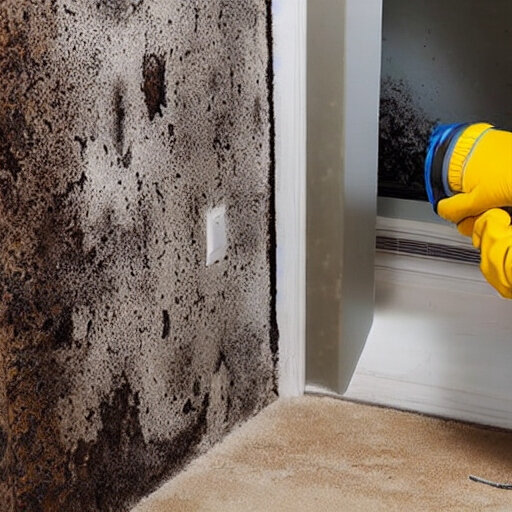When homeowners in Colorado Springs discover mold infestations growing in their properties, they face a decision – invest in professional remediation or try covering up the problem. Given mold’s risks to physical health and home values, experts strongly advise fully eliminating these fungal infestations.
While mold treatment costs can range from $500 up to $10,000+ depending on severity, unchecked mold spread leads to exponentially higher repair bills down the road. Additionally, buyers viewing mold damage during showings instantly lower offers fearing unseen hazards behind walls.
Beyond economic factors, mold releases spores triggering significant respiratory health issues like chronic coughs and asthma attacks. Mold also exacerbates conditions like seasonal allergies and sinus infections. Without remediation, illnesses may plague your household for years.
To determine if discovered mold requires pro-intervention, homeowners can purchase do-it-yourself test kits checking spore counts. But visually confirming mold over 10 total square feet or any presence detected after water damage signals necessary professional handling for Colorado Springs properties. Only certified specialists can fully eliminate root contamination.
Though expensive as emergency home repairs go, thoroughly remediating mold protects precious health and real estate assets better than concealing the problem. Partner with a trusted local remediation company to develop an action plan given your unique situation. The investment promises long-term ownership and peace of mind.
Is It Worth Remediating Mold in Colorado Springs?
| Cost and inconvenience of the remediation process | Pros | Cons | Costs |
|---|---|---|---|
| Health | Reduces risk of respiratory issues and allergies | Mold exposure can lead to health problems | Varies based on extent of mold and remediation method |
| Legal Requirements | Compliance with Colorado laws | Potential fines or legal issues for non-compliance | Depends on legal advice and potential penalties |
| Property Value | Preserves or increases property value | May decrease property value if mold issues are known | Remediation costs vs. potential loss in property value |
| Peace of Mind | Creates a safer and healthier living environment | Cost and inconvenience of remediation process | Depends on individual perception |

Mold Matters in Colorado: Remediate Yourself, Hire Help, or Sell “As-Is” to Investors?
Colorado’s mountain beauty comes with its share of challenges, and mold growth is a common one. When facing mold in your home, you’re presented with a trio of options: tackle the remediation yourself, hire a professional company, or sell the property “as-is” to an investor. Let’s delve into the pros and cons of each approach:
1. DIY Mold Remediation:
Pros:
- Potentially lower cost: If the affected area is small and readily accessible, DIY remediation can be cheaper than hiring professionals.
- Sense of accomplishment: Taking matters into your own hands can be empowering and provide a valuable learning experience.
Cons:
- Health risks: Improper handling of mold can expose you and others to harmful spores, triggering respiratory issues or allergic reactions.
- Incomplete removal: Without proper training and equipment, you might leave behind hidden mold, leading to future health problems and property damage.
- Legal implications: Failing to disclose known mold issues to potential buyers can have legal repercussions.
2. Hiring a Professional Mold Remediation Company:
Pros:
- Expert knowledge and training: Professionals have the expertise and equipment to safely and effectively remove all traces of mold, minimizing health risks and future damage.
- Peace of mind: Knowing the job is done properly by qualified individuals reduces stress and potential worries.
- Documentation and warranties: Reputable companies provide detailed reports and warranties, enhancing the value of your property and attracting more buyers.
Cons:
- Higher cost: Hiring professionals adds to the overall selling expense, impacting your profit margin.
- Potential delays: Finding a qualified company and scheduling the work can add time to your selling timeline.
3. Selling “As-Is” to an Investor:
Pros:
- The fastest option: Investors often close quickly, eliminating the need for repairs or remediation and getting you out of the situation swiftly.
- No upfront costs: You avoid spending money on remediation, potentially maximizing your profit depending on the investor’s offer.
Cons:
- Lower selling price: Investors typically offer significantly below market value to compensate for the remediation required.
- Limited control: You relinquish control over the property’s future and potential use by the investor.
- Disclosure requirements: You’re still legally obligated to disclose known mold issues to potential buyers, including investors.
The Colorado Choice:
The best approach depends on your circumstances, priorities, and risk tolerance. Consider the extent of the mold problem, your budget, timeline, and comfort level with DIY projects. Consulting with a qualified mold remediation company and a real estate professional can help you weigh the pros and cons and make an informed decision that aligns with your specific needs.
Remember:
- Prioritize health and safety first. Regardless of your chosen path, ensure proper protection and ventilation when dealing with mold.
- Seek professional guidance. Consult with experts like mold remediation specialists and real estate agents for informed advice tailored to your situation.
- Document everything. Keep detailed records of any mold issues, remediation efforts, and communication with professionals for future reference and potential legal protection.
With careful consideration and the right guidance, navigating the complexities of mold in your Colorado home can lead to a safe, efficient, and financially sound solution.

How Mold Can Drastically Reduce Your Property Value In Colorado
Mold is a common issue that many homeowners in Colorado face, especially in areas with high humidity levels or water damage. When mold appears in your home, it can be concerning and even potentially harmful to your health. However, the decision to remediate mold can be a significant investment, both in terms of time and money. It is smart to read a variety of Colorado Real Estate Blogs to develop a deeper understanding of the local market and home values. So, is it worth remediating mold in Colorado? Let’s explore this question further.
The Dangers of Mold:
First and foremost, it’s essential to understand the potential dangers associated with mold exposure. Mold spores can trigger allergies and respiratory problems, particularly in individuals with asthma or weakened immune systems. Certain types of mold, such as black mold (Stachybotrys chartarum), produce mycotoxins that can cause more severe health issues if ingested or inhaled over an extended period.
Legal Requirements:
In Colorado, landlords and homeowners are legally required to maintain a safe and habitable living environment. This includes addressing mold issues promptly to ensure the health and safety of occupants. Failure to remediate mold adequately could result in legal consequences, such as fines or lawsuits, particularly if a tenant’s health is compromised due to mold exposure.
Property Value:
Another crucial consideration is the impact of mold on property value. A home with a history of mold problems may be challenging to sell, as potential buyers may be wary of purchasing a property with a known mold issue. Even if the mold has been remediated, the stigma associated with mold can linger, potentially affecting the resale value of the home.
Health Concerns:
The health and well-being of you and your family should always be a top priority. Mold exposure can lead to various health problems, including respiratory issues, allergic reactions, and even neurological symptoms in severe cases. By remedying mold promptly, you can mitigate these health risks and create a safer living environment for yourself and your loved ones.
Cost of Remediation:
While mold remediation can be costly, especially for extensive mold infestations, it’s essential to weigh the cost against the potential long-term consequences of allowing mold to proliferate unchecked. In many cases, the cost of remediation is a worthwhile investment in preserving both your home’s structural integrity and its occupants’ health.
Professional Assessment:
If you’re unsure whether mold remediation is necessary, consider hiring a professional mold inspector to assess the situation. A qualified inspector can identify the extent of the mold problem, determine the underlying cause of the mold growth, and provide recommendations for remediation. A professional assessment can provide peace of mind and help you make an informed decision about how to proceed.

Selling Your House With Mold In Colorado Springs To An Investor
The allure of Colorado Springs, with its majestic peaks and vibrant community, can be overshadowed by unexpected challenges like mold growth in your home. Faced with this issue, selling traditionally might seem daunting. But fret not! Investors present a potential solution, offering a quick and convenient exit, albeit with its own set of considerations. Let’s explore the landscape of selling your Colorado Springs home with mold to investors:
Understanding the Investor Landscape:
- “We Buy Houses” Companies: These often offer swift cash closings, buying “as-is” but typically at a significant discount due to the remediation costs they’ll incur.
- Real Estate Investors: These individuals or groups might offer slightly higher prices than “We Buy Houses” companies, but due diligence is crucial to assess their experience and reputation.
Pros of Selling to Investors:
- Speed and Convenience: No need for repairs or showings, potentially closing within weeks.
- Reduced Stress: Avoid the hassle of traditional listing and negotiations.
- Potentially Lower Overall Costs: No out-of-pocket expenses for repairs or realtor commissions.
Cons of Selling to Investors:
- Lower Selling Price: Expect a significant discount compared to market value to compensate for the investor’s remediation costs.
- Limited Control: You relinquish control over the property’s future use and potential renovations.
- Due Diligence Burden: Thoroughly research potential investors to avoid scams and ensure their legitimacy.
Before You Dive In:
- Know Your Rights: Consult a lawyer specializing in real estate to understand your legal obligations regarding mold disclosure and contracts.
- Get Multiple Offers: Compare offers from several investors to ensure you’re getting the best possible price.
- Consider Remediation: Weigh the cost-benefit analysis of remediating yourself before selling, potentially attracting a wider pool of buyers and fetching a higher price.
Beyond the Basics:
- Be Transparent: Openly disclose the mold issue to potential investors, providing documentation of any assessments or remediation efforts.
- Negotiate Savvy: Don’t accept the first offer! Come prepared with comparable sales data and negotiate confidently to maximize your return.
- Seek Expert Guidance: A qualified real estate agent specializing in “as-is” sales can provide valuable insights and guidance throughout the process.
Remember:
Selling your Colorado Springs home with mold to investors requires careful consideration and due diligence. Weigh the pros and cons, seek professional advice, and negotiate effectively to ensure a smooth and financially sound transaction. While it might not be the ideal scenario, with the right approach, you can navigate this challenge and move forward with your real estate goals.
Conclusion:
In conclusion, the decision to remediate mold in Colorado ultimately depends on several factors, including the extent of the mold problem, the potential health risks, legal requirements, and the impact on property value. While mold remediation can be costly, it’s often worth the investment in ensuring a safe and healthy living environment for you and your family. If you’re dealing with mold in your home, don’t hesitate to take action promptly to address the issue and prevent further damage.
Remember, the health and safety of your household should always be a top priority, and mold remediation is an essential step in maintaining a clean and healthy living space.

FAQ: Is Mold Remediation Worth it in Colorado?
1. What is mold remediation?
- Mold remediation is the process of removing or mitigating mold growth from indoor environments to ensure a safe and healthy living or working space.
2. Is mold remediation necessary in Colorado?
- Yes, mold remediation is often necessary in Colorado, especially in areas with high humidity or moisture levels. Mold growth can pose health risks and structural damage if left untreated.
3. What are the benefits of mold remediation?
- Mold remediation helps improve indoor air quality, reduces health risks associated with mold exposure, prevents further damage to property, and preserves the structural integrity of buildings.
4. How do I know if mold remediation is worth it for my property in Colorado?
- Consider factors such as the extent of mold growth, the type of mold present, the health condition of occupants, and the value of the property. Consulting with a professional mold remediation company can help assess the situation and determine the best course of action.
5. What are the potential drawbacks of mold remediation?
- Mold remediation can be costly, especially for extensive mold infestations or if structural repairs are needed. Additionally, the process may cause disruption to occupants’ daily activities and living arrangements.
6. How much does mold remediation cost in Colorado?
- The cost of mold remediation in Colorado varies depending on factors such as the size of the affected area, the severity of the mold infestation, the accessibility of the mold, and the remediation methods used. It’s advisable to obtain quotes from several reputable mold remediation companies for accurate pricing.
7. Can I perform mold remediation myself?
- While minor mold issues may be remediated by homeowners using DIY methods, it’s recommended to hire professional mold remediation services for larger or more severe mold problems. Professionals have the necessary expertise, equipment, and safety protocols to handle mold remediation effectively.
8. How long does mold remediation take?
- The duration of mold remediation depends on various factors such as the size of the affected area, the extent of mold growth, the remediation methods employed, and the availability of resources. Minor mold remediation projects may take a few days, while larger projects could take weeks to complete.
9. Is mold remediation covered by insurance in Colorado?
- Mold remediation coverage varies among insurance policies and may depend on the cause of the mold growth and the extent of coverage outlined in the policy. It’s advisable to review your insurance policy or consult with your insurance provider to determine coverage options for mold remediation.
10. How can I prevent mold growth in my property in Colorado?
- To prevent mold growth, maintain proper ventilation, control indoor humidity levels, promptly address water leaks or moisture issues, regularly inspect and clean HVAC systems, and ensure proper drainage around the property. Additionally, consider scheduling regular mold inspections and addressing any signs of mold growth promptly.
